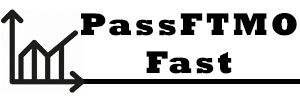Edit this article with
The Rise of Prop Firms: How They’re Changing the Investment Landscape

In recent years, a new breed of investment firms has emerged, shaking up the traditional investment landscape. Proprietary trading firms, or prop firms, are changing the way investors approach the markets. These firms are known for using their own capital to make trades, rather than relying solely on client funds. With their unique business model, prop firms have been able to attract top talent and generate impressive returns. But their rise has also sparked controversy and debate. Some see them as a threat to traditional investment firms, while others view them as a necessary disruption to an outdated industry. In this article, we’ll explore the rise of prop firms, their impact on the investment landscape, and what it all means for investors. Whether you’re a seasoned investor or just getting started, understanding the role of prop firms is essential to navigating today’s markets.
What are prop firms?
Proprietary trading firms, or prop firms, are financial institutions that trade using their own capital. They differ from traditional investment firms in that they don’t rely on client funds to make trades. Instead, they use their own money to take positions in the market. Prop firms typically hire traders to execute their trades, and these traders are often given a share of the profits they generate.
Prop trading firms can be found in many different markets, including equities, futures, options, and currencies. They use a variety of trading strategies, including quantitative analysis, fundamental analysis, and technical analysis, to identify profitable trades.
The history of prop firms
Proprietary trading has been around for centuries, but it wasn’t until the 1970s that prop trading firms began to take shape. In the early days, prop trading was largely the domain of banks and other financial institutions. However, as technology advanced and trading became more accessible, independent prop firms began to emerge.
One of the first independent prop firms was Susquehanna International Group (SIG), which was founded in 1987. SIG was one of the pioneers of electronic trading and played a major role in the development of options trading. Today, SIG is one of the largest prop trading firms in the world, with offices in North America, Europe, and Asia.
Proprietary trading vs. retail trading
Proprietary trading is often compared to retail trading, which is the practice of buying and selling securities on behalf of clients. The main difference between the two is that prop traders use their own capital to make trades, while retail traders use client funds.
Retail trading is typically done through a broker, who charges a commission for each trade. Prop traders, on the other hand, don’t require a broker and can execute trades directly with the market. This allows them to avoid commissions and other fees associated with retail trading.
Advantages of prop trading for traders
Prop trading can be an attractive career path for traders for several reasons. Firstly, prop traders often have access to more capital than retail traders, which allows them to take larger positions in the market. This can lead to higher profits, but also higher risks.
Secondly, prop traders are often given a share of the profits they generate, which can be a significant source of income. This incentivizes traders to take calculated risks and generate profits for the firm.
Finally, prop trading firms often offer traders access to advanced trading technology and resources. This can include proprietary trading software, real-time market data, and research reports.
Advantages of prop trading for firms
Prop trading can also be beneficial for the firms themselves. By using their own capital to make trades, prop firms can generate significant profits without relying on client funds. This can help them weather market downturns and reduce the risk of client withdrawals.
Prop firms can also attract top talent by offering traders the opportunity to work with advanced trading technology and resources. In addition, prop trading firms can be more nimble than traditional investment firms, allowing them to quickly adapt to changing market conditions.
Prop trading strategies
Prop trading firms use a variety of trading strategies to identify profitable trades. These can include quantitative analysis, which involves using mathematical models and algorithms to analyze market data, and fundamental analysis, which involves analyzing financial statements and economic data to identify undervalued or overvalued securities.
Another popular trading strategy used by prop firms is technical analysis. This involves analyzing charts and other market data to identify trends and patterns. Prop traders may also use a combination of these strategies, depending on their trading style and the market conditions.
The impact of prop firms on the investment landscape
The rise of prop firms has had a significant impact on the investment landscape. One of the biggest changes has been the increased competition among financial institutions. Prop firms have disrupted the traditional model of client-based trading, and have forced traditional investment firms to adapt to changing market conditions.
Prop firms have also played a major role in the development of electronic trading. By using advanced trading technology and algorithms, prop firms have been able to execute trades faster and more efficiently than traditional traders.
Finally, prop firms have helped to democratize trading by making it more accessible to individual investors. Many prop trading firms offer training programs and mentorship opportunities for aspiring traders, which can help them develop the skills and knowledge needed to succeed in the markets.
Future of prop firms
The future of prop trading is uncertain, as the industry continues to evolve and adapt to changing market conditions. Some experts predict that prop trading firms will continue to grow and play an increasingly important role in the investment landscape. Others believe that increased regulation and competition could limit the growth of prop trading in the coming years.
One thing is certain: prop trading is here to stay. As long as there are financial markets, there will be traders looking to capitalize on them. The key for prop firms will be to stay ahead of the curve by developing new trading strategies and using the latest technology to gain an edge in the markets.
Risks and challenges of prop trading
Prop trading is not without its risks and challenges. One of the biggest risks is the potential for large losses. Because prop firms use their own capital to make trades, they are exposed to the full risk of the market. This can lead to significant losses if trades go against them.
Another challenge for prop trading firms is the need to constantly adapt to changing market conditions. The financial markets are notoriously unpredictable, and traders must be able to quickly adjust their strategies to stay ahead of the curve.
Finally, prop trading firms must navigate a complex regulatory landscape. In many countries, prop trading is subject to strict regulations and oversight. Firms must ensure that they comply with all relevant laws and regulations to avoid legal and financial penalties.
Conclusion
Proprietary trading firms have emerged as a major force in the investment landscape, shaking up traditional models of client-based trading. With their unique business model and advanced trading technology, prop firms have been able to generate impressive returns and attract top talent. However, they also face significant risks and challenges, including the potential for large losses and complex regulatory requirements.
As investors, it’s important to understand the role of prop firms in today’s markets. While they may not be right for everyone, prop trading can be an attractive career path for traders looking to take on more risk and generate higher profits. And for investors looking to diversify their portfolios, prop trading firms can offer a unique opportunity to capitalize on the markets.





